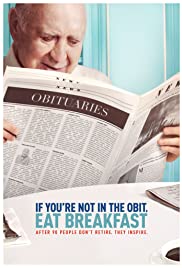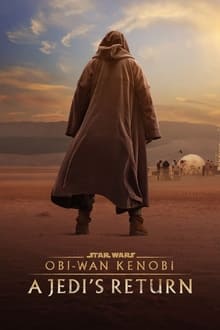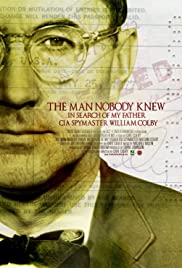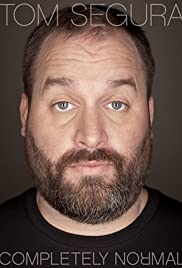Capturing Avatar is a feature length behind-the-scenes documentary about the making of Avatar. It uses footage from the film’s development, as well as stock footage from as far back as the production of Titanic in 1995. Also included are numerous interviews with cast, artists, and other crew members. The documentary was released as a bonus feature on the extended collector’s edition of Avatar.
You May Also Like

Stolen is a 2009 Australian documentary film that uncovers slavery in the Sahrawi refugee camps controlled by the Polisario Front located in Algeria and in the disputed territory of Western Sahara controlled by Morocco, written and directed by Violeta Ayala and Dan Fallshaw. It had its world premiere at the 2009 Sydney Film Festival,[1] where a controversy started after one of the participants in the documentary, Fetim, a black Sahrawi, was flown to Australia by the Polisario Liberation Front to say she wasn’t a slave.

Irrepressible writer-comedian Carl Reiner, who shows no signs of slowing down at 94, tracks down celebrated nonagenarians, and a few others over 100, to show how the twilight years can truly be the happiest and most rewarding. Among those who share their insights into what it takes to be vital and productive in older age are Mel Brooks, Dick Van Dyke, Kirk Douglas, Norman Lear, Betty White and Tony Bennett.

An intimate and hugely entertaining dinner with key members of the cast of The Sopranos, as they reminisce about the show, filmed in the Little Italy restaurant, IL Cortile, that cast members would go to for a commiseration dinner after their character had been killed off in the show.

THE PINK HOUSE tells the story of Kalgoorlie’s last original goldrush brothel through the eyes of the colourful Madam Carmel, 70, and her longest-serving lady of the night, BJ. Filmed over several years and with unprecedented access to the inner workings of this unique brothel, THE PINK HOUSE is an intimate portrait of two women bound together by the past and their precarious future. And when darker forces begin to exert pressure, their fragile relationship is tested to its limits.

TikTok: it’s the social media app which has come to define our perception of Gen Z, and which has firmly embedded itself within the covid-era zeitgeist. A phenomenally popular platform, more than a billion users scroll through its endless feeds, and it’s turned ordinary people into overnight internet stars.

This documentary charts the complexity and genius of the NBA’s all-time leading scorer Kareem Abdul-Jabbar’s legendary career, both on and off the court. Spotlighting a six-time MVP and six-time world champion, the film examines his controversial and landmark moments, his outspoken feelings about race and politics, and the evolution of the game.

A look into six proud veterans’ experiences with the US Department of Veterans Affairs (VA) Veterans Health Administration (VHA) as they seek to manage the mental and physical trauma they sustained in uniform. The film details their experiences with an embattled VA and educates about the fundamental changes that are needed to ensure our veterans are taken care of.

A new documentary that showcases the making of the epic limited series. Features never-before-seen, behind-the-scenes footage, interviews and visits to the creature shop and props department.

A personal exploration into the life of America’s controversial former CIA Director told through the eyes of his wife and filmmaker son, Carl. Through extraordinary events in twentieth century history, this consummate soldier/spy stood at the center of the Agency’s most clandestine activities and operations. The film reveals the ‘cover life’ of this CIA operative, who followed orders and took on the dirtiest assignments until the Nixon Administration ordered him to ‘stonewall’ Congress about the CIA’s past abuses, but he refused. This film reveals why, for the first time, he could not obey.

An original stand-up comedy special written and performed by comedian Tom Segura.

An exploration of the diversity of moths and butterflies from caterpillars to larvae to chrysalis to winged flight. The documentary covers camouflage and other anti-predatory tactics along with uniqueness of different species and amazing feats and colors.

Journey to the Teatro del Silenzio (Theater of Silence), Lajatico, where once-in-a-lifetime performances showcase the Maestro’s extensive and beloved repertoire, alongside captivating duets with an unprecedented cast of global superstars, including Ed Sheeran, Shania Twain, Will Smith, Jon Batiste, Sofia Carson, Lang Lang, Nadine Sierra and more. With extraordinary staging, production, and visuals, set against a landscape of unparalleled beauty amongst the Tuscan hills, Andrea Bocelli’s sensational career comes to life in a truly unforgettable experience.